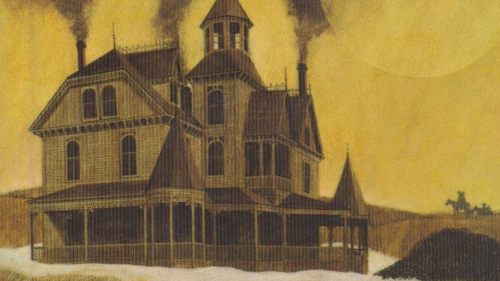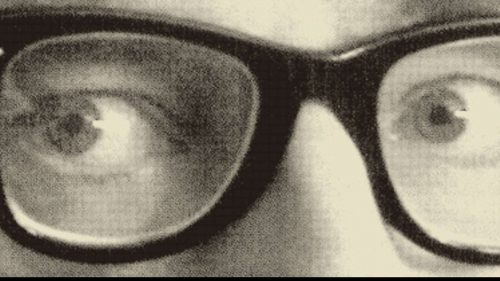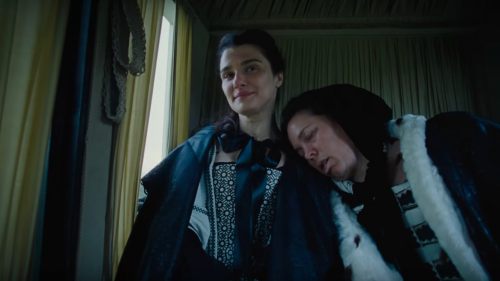THE FAVOURITE: A Georgian Era Reality TV Show
The Favourite is out soon. Get your tickets here!
Seventy years ago, former radio ad man Allen Funt had the brilliant idea of turning his popular, year-old radio program into a new kind of show. On August 10, 1948 “The Candid Microphone” premiered on TV as Candid Camera and reality television was born. Today there are a slew of reality shows spun from Funt’s original web. Little did Funt know that his silly, light-hearted idea would explode into one of the most provocative, outrageous, obnoxious, and lucrative genres of 21st century home-viewing.
Greek writer and director Yorgos Lanthimos (Dogtooth, The Lobster) is known for his pitch-black humor and bone dry directorial timbre—a style that is galaxies apart from the histrionic sensibilities of reality TV. His previous films have all taken place in modern day, or a slightly distant future. Given his characters’ trademark laconic tone, it’s hard to imagine how any film he sets in the present could possibly embody reality television. But his most recent film breaks that trend in a way that broadens his range. The Favourite takes place in a very sassy early 18th century England. It tells the mostly true story of Queen Anne (Olivia Colman), her primary consult Sarah Churchill the Duchess of Marlborough (Rachel Weisz)—who was the Queen’s best friend and foremost political adviser, as the Queen herself knew very little when it came to politics—and Abigail Hill (Emma Stone), a cousin of Lady Marlborough’s who finds herself in Queen Anne’s castle working as a servant. Not only is it Lanthimos’s first foray into a new time period, but it's the first film he did not write himself, though his bludgeoning, sharp-witted sense of humor is all over it.
This is not the first time reality TV has worked its way into a big screen narrative. Albert Brooks wrote and directed Real Life, a dramedy centered on the filming of a reality TV show. You’ve all seen The Truman Show, a film that offers—spoiler—a meta-experience of reality television. Italian writer/director Matteo Garrone made the thrilling and chilling Reality about a man who is convinced he’s constantly being auditioned for a role in reality TV. Then, there are the literal adaptations from TV to silver screen, like the Jackass series. But this melding of reality TV and film is more conceptual in nature. History did not record every tedious inner-working of Queen Anne’s court, but it did record the beginning and the end. Everything in between is speculated by The Favourite.
Screenwriters Tony McNamara and Deborah Davis do a fantastic job providing a new playground for Lanthimos to run amok in that is essentially 18th century reality television. Everyone lives under one roof, but in vast socio-economic disparity. Throw modern day egalitarianism out the window—this is hierarchical The Real World. Anne lays lavished in her oversized bed, surrounded by chockablock portraits and landscapes that are the present-day equivalents of Warhols and Wileys, shoveling decadent cake into her mouth, radiating despicable opulence and entitlement in her bossy aggression toward her estate of stooges. Lady Marlborough sits at her side, wielding the Queen’s ignorance and favor for herself in the name of divisive political strategy. In social form, she is Queen Anne’s only equal. Meanwhile, Abigail and the servants lay shoulder-to-shoulder on cold stone floors in cold stone rooms, taking occasional “baths” in the prison-esque form of someone splashing a bucket of icy spring water on them, and biting their tongue before they think to speak in front of their superiors.
The narrative shifts into Survivor mode when Abigail grows decidedly discontent with her position in the servant’s quarters. Once she is able to charm her cousin Sarah, challenges ensue. The challenges—like the culture of Georgian Era Great Britain—are predicated on social implication and political ambition, but they are no less juicy for it. A splendid afternoon out at the shooting range becomes a blood-splattering display of surreptitious potential that recurs each time with new tabloid-like insight into the developments of the hierarchy of the Queen’s court. Dance scenes become bombastic displays of confidence and show, informing the nature of wild drama that is to unfold. Late nights in the parlor follow suit. Hell, there is a literal duck race that carries as much tense energy as the Winklevoss rowing competition sequence in Fincher’s The Social Network.
And just like with reality television, more characters are introduced. Everyone has slightly different goals, but all have the same motivation: ruthless victory. Statesman Robert Harley (Nicholas Hoult) pursues the political ground that Lady Marlborough has so feverishly controlled through the antics of Abigail. Samual Masham (Joe Alwyn) is head over heels for Abigail, blind to the storm raging in the castle. Backs are ruthlessly stabbed, secrets float around like mystifying fog, charged confrontations exponentially increase, and pointed eye contact is as melodramatic as it is in “Tribal Council” sessions. Together everyone forms a racy, tantalizing web of operatic theater measured in blood, sweat, and tears—which are all poured out in eccentric excess—under the aegis of the Survivor slogan: “Outwit, outplay, outlast.” Who will get voted out?
Lascivious, selfish, and cruel as they are raunchy, bizarre, and hilarious, Weisz, Stone, Colman, Hoult, and Alwyn work wonders with McNamara and Davis’s screenplay. And Lanthimos—along with cinematographer Robbie Ryan (Fish Tank, American Honey)—captures their piquant performances with wide angles and fisheye lenses. You get the idea that, a la Real World, there is a camera in every room, witnessing every shared meal, catching every hidden exchange, spying on every lie told in the dark. By the end, you have to wonder whether Lanthimos and co. did all of this intentionally. Or, perhaps history is much juicier thank we think.



